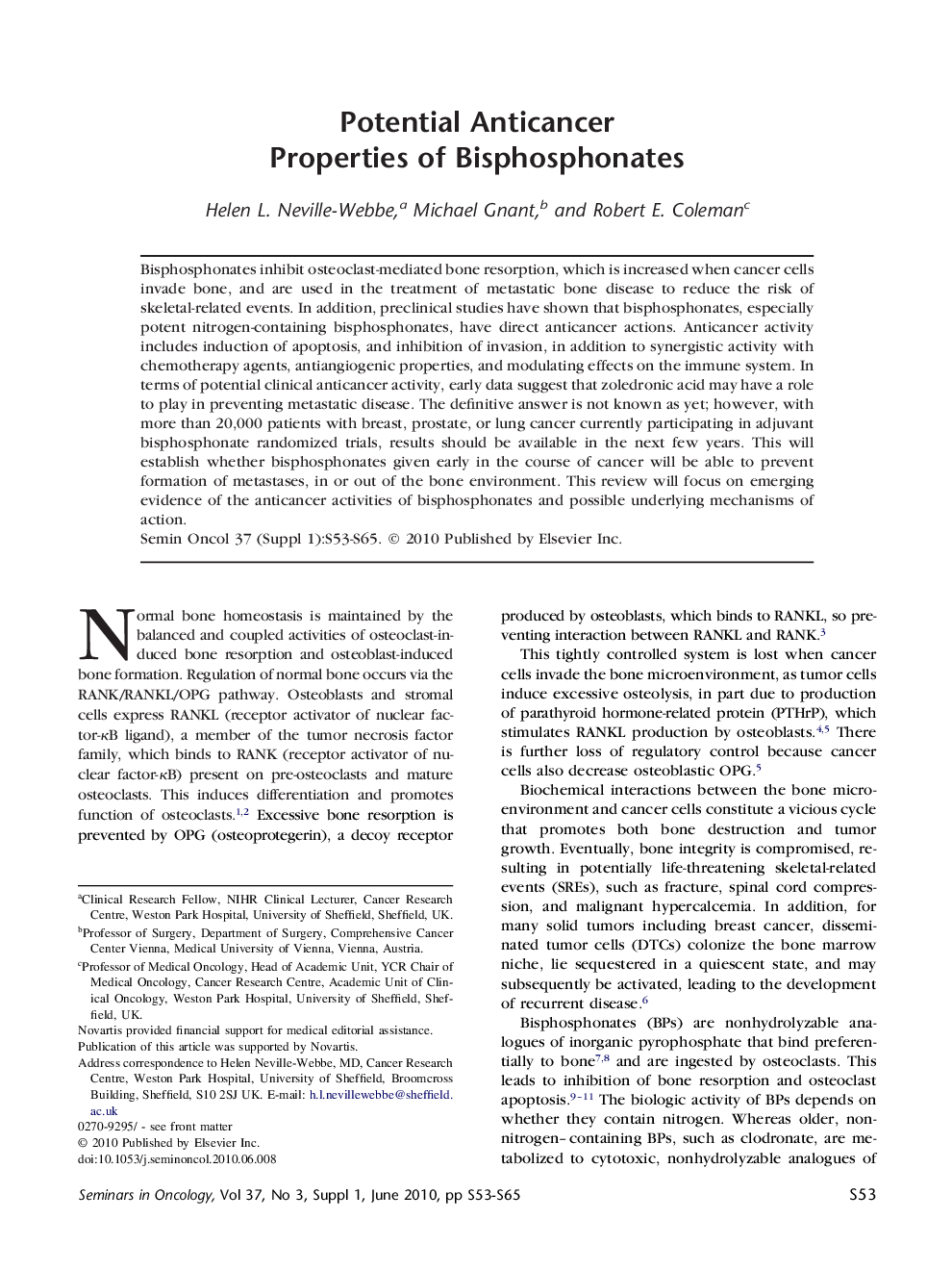| Article ID | Journal | Published Year | Pages | File Type |
|---|---|---|---|---|
| 2162481 | Seminars in Oncology | 2010 | 13 Pages |
Abstract
Bisphosphonates inhibit osteoclast-mediated bone resorption, which is increased when cancer cells invade bone, and are used in the treatment of metastatic bone disease to reduce the risk of skeletal-related events. In addition, preclinical studies have shown that bisphosphonates, especially potent nitrogen-containing bisphosphonates, have direct anticancer actions. Anticancer activity includes induction of apoptosis, and inhibition of invasion, in addition to synergistic activity with chemotherapy agents, antiangiogenic properties, and modulating effects on the immune system. In terms of potential clinical anticancer activity, early data suggest that zoledronic acid may have a role to play in preventing metastatic disease. The definitive answer is not known as yet; however, with more than 20,000 patients with breast, prostate, or lung cancer currently participating in adjuvant bisphosphonate randomized trials, results should be available in the next few years. This will establish whether bisphosphonates given early in the course of cancer will be able to prevent formation of metastases, in or out of the bone environment. This review will focus on emerging evidence of the anticancer activities of bisphosphonates and possible underlying mechanisms of action.
Related Topics
Life Sciences
Biochemistry, Genetics and Molecular Biology
Cancer Research
Authors
Helen L. Neville-Webbe, Michael Gnant, Robert E. Coleman,
